by Susan Dean | Feb 2, 2018 | Benefits of Certain Foods, Health

The Benefits of ChocolateA 2011 Swedish study found that women who ate more than 45 grams of chocolate a week had a 20 percent lower risk of stroke than women who treated themselves to fewer than 9 grams.
Regular chocolate eaters welcome a host of benefits for their hearts, including lower blood pressure, lower “bad” LDL cholesterol and a lower risk of heart disease.
Dark chocolate is especially heart-healthy because of its inflammation-fighting properties that reduce cardiovascular risk.
Because it is rich in fiber, dark chocolate can actually help keep you full, so you’ll eat less, Dr. David Katz, founding director of Yale University’s Prevention Research Center stated. Regular chocolate eaters might do themselves a favor by treating themselves to a bite instead of snacking on “11 other things first” he said.
Dark chocolate does the trick much better than milk, according to a small study from the University of Copenhagen, and may even reduce cravings for sweet, salty and fatty foods.
A small Italian study from 2005 found that regularly eating chocolate increases insulin sensitivity, thereby reducing risk for diabetes.
Dark chocolate is actually good for your skin. The type of antioxidants called flavonoids found in dark chocolate offer some protection from UV damage from the sun.
An ingredient in chocolate called theobromine seems to reduce activity of the vagus nerve, the part of the brain that triggers hard-to-shake coughs.
In late 2010, the BBC reported that scientists were investigating creating a drug containing theobromine to replace cough syrups containing codeine, which can have risky side effects.
Chocolate eaters also report feeling less stressed.
Cocoa has anti-clotting, blood-thinning properties that work in a similar way to aspirin, Dr. Fitzgerald writes, which can improve blood flow and circulation.
Because of chocolate’s ability to improve blood flow, in particular to the brain, researchers at the University of Reading hypothesized in a small 2011 study that chocolate may also increase blood flow to the retina, thereby giving vision a boost.
That boost of blood flow to the brain created by cocoa’s flavanols seems to make people feel more awake and alert, and, in a small British study, perform better on counting tasks. The chocolate should be at least 70% cocoa or more. You can order cocao beans on the internet and grind the chocolate beans like you would coffee beans, or break them into nibs to use in cooking. It’s a real treat!
 Raw Cacao? According to secrets-of-longevity-in-humans.com the antioxidant content of raw cacao benefits the cardiovascular system and whole body health.
Raw Cacao? According to secrets-of-longevity-in-humans.com the antioxidant content of raw cacao benefits the cardiovascular system and whole body health.
In processed dark chocolate, antioxidants can be present, but are in much lower levels than in unheated raw chocolate nibs as an example. Out of al whole foods that contain antioxidants, raw chocolate is the highest in the world.
The nutrient density of raw cacao benefits every function of the body. It is the highest source of magnesium and chromium of any food! Magnesium is the most deficient mineral in the average human. All the compounds found in raw cacao benefit longevity in humans. Nutrients found in raw chocolate have been linked to a number of health benefits:
1) Lower blood pressure & improve circulation – Flavanols, theobromine, and other components found in cacao may lower blood pressure and enhance circulation by promoting dilation, strength, and health of blood vessels.
2) Promote cardiovascular function & health – Antioxidant flavonoids and essential minerals and vitamins found in cacao support healthy heart functioning by lowering blood pressure, improving blood flow, lowering LDL cholesterol, and reducing plaque buildup on artery walls.
3) Neutralize free radicals – High levels of antioxidants protect the body from a buildup of free radicals from sun exposure, pollution, cigarette smoking, etc., which may damage healthy body tissue giving rise to cancer and cardiovascular disease.
4) Improve digestion – A sufficient amount of fiber with each serving of cacao supports digestion as cacao stimulates the body’s production of digestive enzymes.
5) Enhance physical and mental wellbeing – There are many components of cacao including alkaloids, proteins, beta-carotene, leucine, linoleic, lipase, lysine, and theobromine, that all work together to improve physical and mental health. Theombromine stimulates the central nervous system, relaxes smooth muscles, and dilates blood vessels, giving the body a boost of energy; “bliss” chemicals found in cacao help to increase circulation and availability of serotonin and other neurotransmitters in brain, improving mood and combating depression.


by Susan Dean | Feb 2, 2018 | Benefits of Certain Foods, Health
The 11 Healthiest Whole Grains
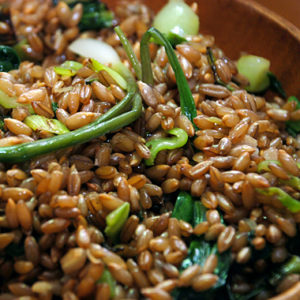
Whole Rye – Rye has more nutrients per 100-calorie serving than any other whole grain. It has four times more fiber than standard whole wheat and provides you with nearly 50 percent of your daily-recommended amount of iron. The problem is, most rye and pumpernickel (made primarily from rye) bread in this country is made with refined flours. Be persistent; look for “whole rye” topping the ingredients list to get the healthy benefits.

Whole Wheat can be readily found in bread and pasta products, but make sure the label says “100 percent whole wheat.” Terms like “multigrain” and “wheat” don’t cut it. Look at the ingredients and make sure the whole grain is at or near the top of the list. Each serving should contain at least 2 or 3 grams of fiber.
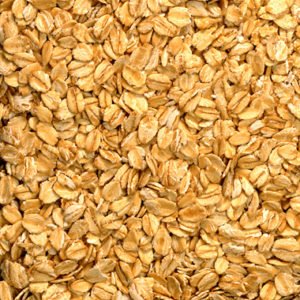
Whole Oats/Oatmeal are particularly rich in avenanthramide, an antioxidant that protects the heart. If you are buying something like instant oatmeal, avoid those that contain high-fructose corn syrup. A study this year found that the ingredient was a source of mercury contamination in oatmeal.

Bulgur – The grain is used to make tabbouleh salad and is a great source of iron and magnesium. The fiber and protein powerhouse (a cup contains nearly 75 percent of the dietary fiber you need for the day, and 25 percent of the protein you should get) can be used in salads or tossed in soups. It’s ready in minutes.

Brown Rice – When you choose white rice over brown, around 75 percent of rice’s nutrients – antioxidants, magnesium, phosphorus, and B vitamins contained in the healthy bran and germ—are left on the milling-room floor. Buy brown rice including brown aromatic varieties like basmati and jasmine.
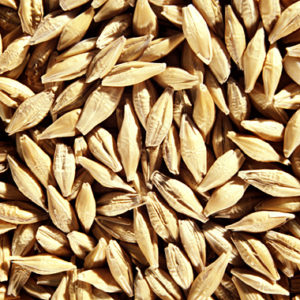
Whole-Grain Barley – Eating a half-cup of whole barley regularly for a 5-week period cut participants’ cholesterol levels by nearly 10 percent. Add raisins or dried apricots to quick-cooking barley, and serve it as a side dish. Make sure it’s whole-grain barley, not “pearled,” which means the bran and germ has been removed.

Buckwheat – It’s one of the best grain-based sources of magnesium, a wonder mineral that does everything from ease PMS symptoms to improve nerve functioning, and manganese, which boosts brain power.
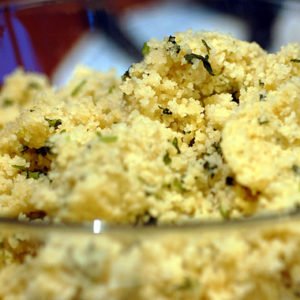
Whole-Wheat Couscous – Look for the whole-wheat kind, often most easily found in natural-food stores. Skipping the refined version and going with the whole-grain type will gain you 5 additional grams of fiber.

Corn – Corn can be healthy for you when it’s whole! A good source of B vitamins, magnesium, and phosphorus, whole corn is thought to increase healthy gut flora, ward off diabetes, heart disease, and chronic inflammation. Yellow corn is high in antioxidants. Organic is important, as about 40 percent of the corn grown in the United States is genetically modified (GM) to withstand higher doses of pesticides. Some studies are starting to link GM foods to allergies and other health problems.
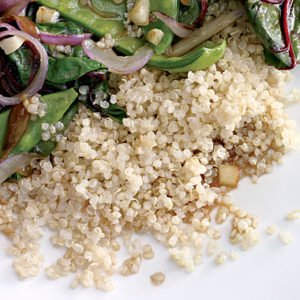
Quinoa – Though it’s technically a seed and not a grain, this ancient South American power food is packed with more protein than any other grain, and each uncooked cup of the stuff (about three servings) has 522 milligrams of omega-3 fatty acids. Your family will likely enjoy its light, nutty flavor for a change of pace at the dinner table.
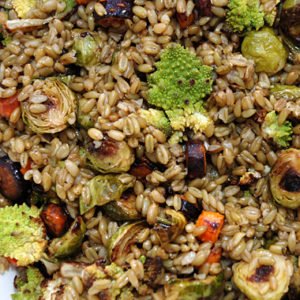
Freekeh – This Arabic grain is a low-carb form of ancient wheat that has up to four times more fiber than brown rice. Freekeh kernels are harvested while they’re young and then roasted. They contain more vitamins and minerals, such as immune-boosting selenium, than other grains. Freekeh acts as a prebiotic, stimulating the growth of healthy bacteria that aid digestion. Look for it in Middle Eastern markets or natural-food stores.
by Susan Dean | Feb 2, 2018 | Benefits of Certain Foods, Health
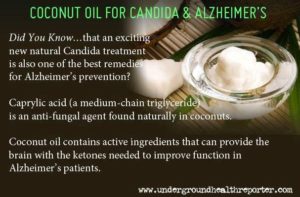
There are many benefits from using coconut oil. Coconut Oil is affordable, readily available and completely natural and is known to be:1. Anti-bacterial (kills bacteria that cause ulcers, throat infections, urinary tract infections, gum diseases, and other bacterial infections)
2. Anti-carcinogenic (coconut oil has antimicrobial properties so it may prevent the spread of cancer cells while enhancing the immune system)
3. Anti-fungal (kills fungi and yeast that lead to infection)
4. Anti-inflammatory (appears to have a direct effect in suppressing inflammation and repairing tissue, and it may also contribute by inhibiting harmful intestinal microorganisms that cause chronic inflammation.)
5. Anti-microbial/Infection Fighting (the medium-chain fatty acids and monoglycerides found in coconut oil are the same as those in human mother’s milk, and they have extraordinary antimicrobial properties. By disrupting the lipid structures of microbes, they inactivate them. About half of coconut oil consists of lauric acid. Lauric acid, its metabolite monolaurin and other fatty acids in coconut oil are known to protect against infection from bacteria, viruses, yeast, fungi and parasites. While not having any negative effect on beneficial gut bacteria, coconut oil inactivates undesirable microbes.)
6. An Antioxidant (protects against free-radical formation and damage)
7. Anti-parasitic (fights to rid the body of tapeworms, lice and other parasites)
8. Anti-protozoa (kills giardia, a common protozoan infection of the gut)
9. Anti-retroviral (may reduce the viral load of HIV-AIDS patience)
10. Anti-viral (may kill some viruses that cause influenza, herpes, measles, hepatitis C, SARS, AIDS, and other viruses)
11. Effective at improving nutrient absorption (easily digestible; makes vitamins and minerals more available to the body)
12. Has no harmful or discomforting side effects
13. Fights Infection
14. Nontoxic to humans and animals
Type of Coconut Oil to Use
Unrefined (virgin or extra-virgin) coconut oil comes from fresh coconuts and has not been changed with heat processes. It is the purest, most natural, least processed form. Unrefined coconut oil retains the most nutritional value and is superior to refined oil. While refined coconut oil is almost as nutritious as unrefined, it loses some of its health properties during the refining process. Avoid hydrogenated or partially hydrogenated coconut oils as the hydrogenation process creates synthetic trans-fats!
Here are a few of the many uses for coconut oil:
1. Appetite Suppressant – the fat in coconut oil triggers the release of a hormone that slows down food movement through the digestive tract. It is the last nutrient to get digested and leave the stomach, supplying you a delayed feeling of satisfaction after eating.
2. Breastfeeding – for breastfeeding moms, consuming at least 3 ½ tablespoons of coconut oil daily will enrich and increase the milk supply.
3. Bones and Teeth – coconut oil aids in the absorption of calcium and magnesium leading to better development of bones and teeth.
4. Digestion – the saturated fats in coconut oil help control parasites and fungi that cause indigestion and digestion related problems such as irritable bowel syndrome. 5. The fat in coconut oil aids in the absorption of vitamins, minerals and amino acids.
6. Energy Boost – coconut oil boosts energy and endurance making it a great supplement for athletes as well as those needing a quick pick me up.
7. Fitness – coconut oil has been proven to stimulate your metabolism, improve thyroid function, and escalate energy levels, all of which help decrease your unwanted fat while increasing muscle.
8. Improves insulin secretion and utilization of blood glucose making it great for both diabetics and non-diabetics who want to get their blood sugar stabilized before addressing other health issues.
9. Lung Function – increases the fluidity of cell surfaces.
10. Pregnancy – helps prevent gestational diabetes; keeps kidneys functioning; keeps morning sickness in check; and protects a mother-to-be from a host of potentially threatening infections as well as boost her immunity, which is naturally weakened during pregnancy.
11. Prevents oxidation of fatty acids
12. Skin Tone – promotes firmer skin tone and less sagging.
13. Stress Relief – relieve mental fatigue by applying coconut oil to the head in a circular, massaging motion. The natural aroma of coconuts is extremely soothing thus helping to lower your stress level.
14. Vitamin and nutrient absorption – specifically magnesium and calcium.
15. Weight loss – the saturated fats contribute to weight loss and also increases metabolic rate.
16. Coconut Oil for Chronic Health Problems – when taken internally it is known for aiding, preventing, relieving or even curing many health issues
17. Cancer – has been shown to prevent colon and breast cancer in laboratory tests
18. Cholesterol – improves HDL (‘good’ cholesterol) to LDL (‘bad’ cholesterol) ratio
19. Degenerative Diseases – provides antioxidants to fight free radicals that slow degenerative diseases such as arthritis
20. Diabetes – helps with cravings by stabilizing blood sugar. Eases neuropathies and itching.
21. Kidney Stones – aids in dissolving them
22. Coconut oil supports cell regeneration.
23. Age Spots – applying coconut oil directly to the age spot will help it fade.
24. Snoring Relief – by rubbing a dab of coconut oil in each nostril before bedtime, you will reduce swelling in the membranes of the lining of your nostrils which will stop the snoring.
25. Insect Repellent – mix coconut oil with peppermint oil extract and rub it all over exposed skin. Keeps insects off better than anything with DEET! Tons safer too.
by Susan Dean | Feb 2, 2018 | Benefits of Certain Foods, Health

7 Benefits of Celery:
Immune System
The high amounts of vitamin C in celery promote a healthy immune system.
Blood Pressure
Celery contains pthalides, which have been shown to lower blood pressure by relaxing the muscles around the arteries and allowing vessels to dilate. The calcium, magnesium, and potassium in celery also helps regulate blood pressure.
Cholesterol
The pthalides in celery may also lower cholesterol by increasing bile acid secretion.
Cancer
Celery contains coumarins that have been shown to be effective in the prevention of cancer.
Diuretic
Celery has been used as a diuretic for centuries. Its diuretic effect comes from its balance of potassium and sodium that helps to flush out excess fluid from the body.
Inflammation
Celery is believed to have anti-inflammatory properties, which may help with ailments attributed to inflammation such as arthritis.
Diet Aid
Celery will not directly cause you to lose weight, but it is a great aid in weight loss because it is very low in calories and has a lot of filling fiber.
Detox Drink Celery, Parsley, Cilantro, Pineapple or an Apple, Lime Juice/Water and Cucumber blender or juiced together. Drink before breakfast and before lunch for 7 days, rest 7 days and then repeat. Suggestion is to do once every 3 months to detox the body as needed.

by Susan Dean | Feb 2, 2018 | Benefits of Certain Foods, Health

Benefits of Coffee
Hippocrates said, “Let food be thy medicine and medicine be thy food.” Food can heal the body. Coffee is probably the greatest source of antioxidants in the global diet. And while having lots of it isn’t recommended for everyone, for some of us, it may just be the superfood of the century. Here are nine reasons to start the day with this healing drink.
It may lower risk of death.
Coffee appears to lengthen the “when” for individuals with certain chronic conditions such as heart disease and diabetes, according to a large 2012 study. The study found that the more coffee (three or more cups a day), the lower the risk of death regardless of whether participants drank caffeinated or decaffeinated coffee.
It helps make the reproductive systems happy.
Coffee lowers the risk of prostate cancer, and the risk of endometrial cancer. A 2011 study found that men consuming six or more cups a day reduced their risk of prostate cancer by 20 percent! Another study published in the Journal Cancer Epidemiology, Biomarkers and Prevention found that women who drank more than four cups of coffee a day had a 25 percent lower risk of endometrial cancer.
Helps lower the risk of developing Type 2 diabetes.
A 2012 study found that a compound in coffee helped to block a substance that may play a role in the development of diabetes. Further studies demonstrated that caffeinated coffee consumption is linked to decreased diabetes risk.
Helps protect the brain.
Coffee drinkers are more likely to resist development of dementia and Alzheimer’s later in life according to a 2009 study. Another study found that the smell of coffee helped to reduce stress associated with loss of sleep.
Helps recovery after colon surgery.
One big sign of recovery from surgery is the return of bowel function. One study found that coffee consumption helped to speed this recovery sign when compared to water drinkers.
It’s great for skin.
Drinking coffee may help you to ward off the most diagnosed form of skin cancer! A study in the journal Cancer Research looking specifically at the caffeine in coffee demonstrated that coffee drinkers had a lower risk of developing basal cell carcinoma.
May help reduce the risk of oral cancer.
A recent large study found that individuals who drank four or more cups of coffee a day had a 50 percent lower risk of death from oral cancers in a 25-year time frame.
May help strengthen your muscles — and DNA.
A study in the journal Cell Metabolism found that caffeine actually had a similar effect to our DNA molecules in our muscles as exercise (now, this does not mean you can stop exercising). The study looked specifically at DNA changes of muscles in sedentary individuals and found that positive effects from coffee were similar to effects derived from exercise. The most interesting factor in the study was the fact that these positive changes were seen rather quickly.
Consumption of coffee is not recommended for everyone. While you may automatically think that patients with heart problems avoid the java, some studies actually show benefit of coffee consumption for heart patients. Individuals that are pregnant or going through IVF treatments should avoid consumption of coffee. Individuals struggling with insomnia or depression should limit coffee intake. Keep the coffee cup out of your children’s hands and let them experience the wonders of coffee when they get older.
by Susan Dean | Feb 2, 2018 | Benefits of Certain Foods, Health
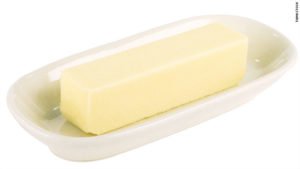 Butter Super Food Butter is a healing superfood. It has the highest source of conjugated linoleic acid (CLA), a powerhouse fatty acid. CLA concentration varies with the season. CLA concentration is 4 times higher in summer milk than winter, due to pasture grazing. CLA inhibits cancer, according to one report in the Journal of Nutrition:“In a number of studies, conjugated linoleic acid, at near-physiological concentrations, inhibited mammary tumorigenesis independently of the amount and type of fat in the diet. “
Butter Super Food Butter is a healing superfood. It has the highest source of conjugated linoleic acid (CLA), a powerhouse fatty acid. CLA concentration varies with the season. CLA concentration is 4 times higher in summer milk than winter, due to pasture grazing. CLA inhibits cancer, according to one report in the Journal of Nutrition:“In a number of studies, conjugated linoleic acid, at near-physiological concentrations, inhibited mammary tumorigenesis independently of the amount and type of fat in the diet. “
Additionally, this fatty acid has been shown to inhibit the growth of skin, colon, breast and lung cancer cells. Multiples studies reveal that CLA reduces the size of tumors in lab rats.
These studies show why butter is important for children to eat! CLA fed to rats before the perpubertal period prevented the growth of tumors, but when the rats weren’t fed CLA until maturity, they had to consume the fatty acid for the rest of their life to prevent tumor growth.
Butter contains 4% butyric acid, an anti-carcinogenic short-chain fatty acid. It inhibits the growth of mammary tumors. Butyric acid is a biological response modifier, a substance that arouses the body’s response to infection.
Butter does NOT make you fat. Butter is a rich source of short and medium chain fatty acids, and these molecules “are not deposited to any extent in the adipose tissue”
Butter contains vitamin K2. Weston Price recorded his investigation of this vitamin and found that butter high in K2, combined with “a favorable selection of natural foods” successfully treated tooth decay. Interestingly, the concentration of K2 in butter varied greatly depending on the cow’s food with a prominent increase when the cows were pasture grazing
Scientists continue to explore the importance of K2 in diet. A recent study published by a European nutrition journal showed that an increased consumption of K2 may reduce the risk of prostrate cancer by 35 percent
Butter is packed with Fat-Soluble Vitamins. It is a potent source of vitamins A, D, and E, and the perfect carrier for these vitamins because it provides the fat needed for their absorption. It offers these vitamins to your body in the most assimilable form. In animal sources, vitamin A is a retinol and requires a little work by the body to make this conversion. On the other hand, the body is very inefficient at converting cartenoids from plant sources (like beta-carotene in orange veggies) into useable vitamin A.


 Raw Cacao? According to secrets-of-longevity-in-humans.com the antioxidant content of raw cacao benefits the cardiovascular system and whole body health.
Raw Cacao? According to secrets-of-longevity-in-humans.com the antioxidant content of raw cacao benefits the cardiovascular system and whole body health.



















